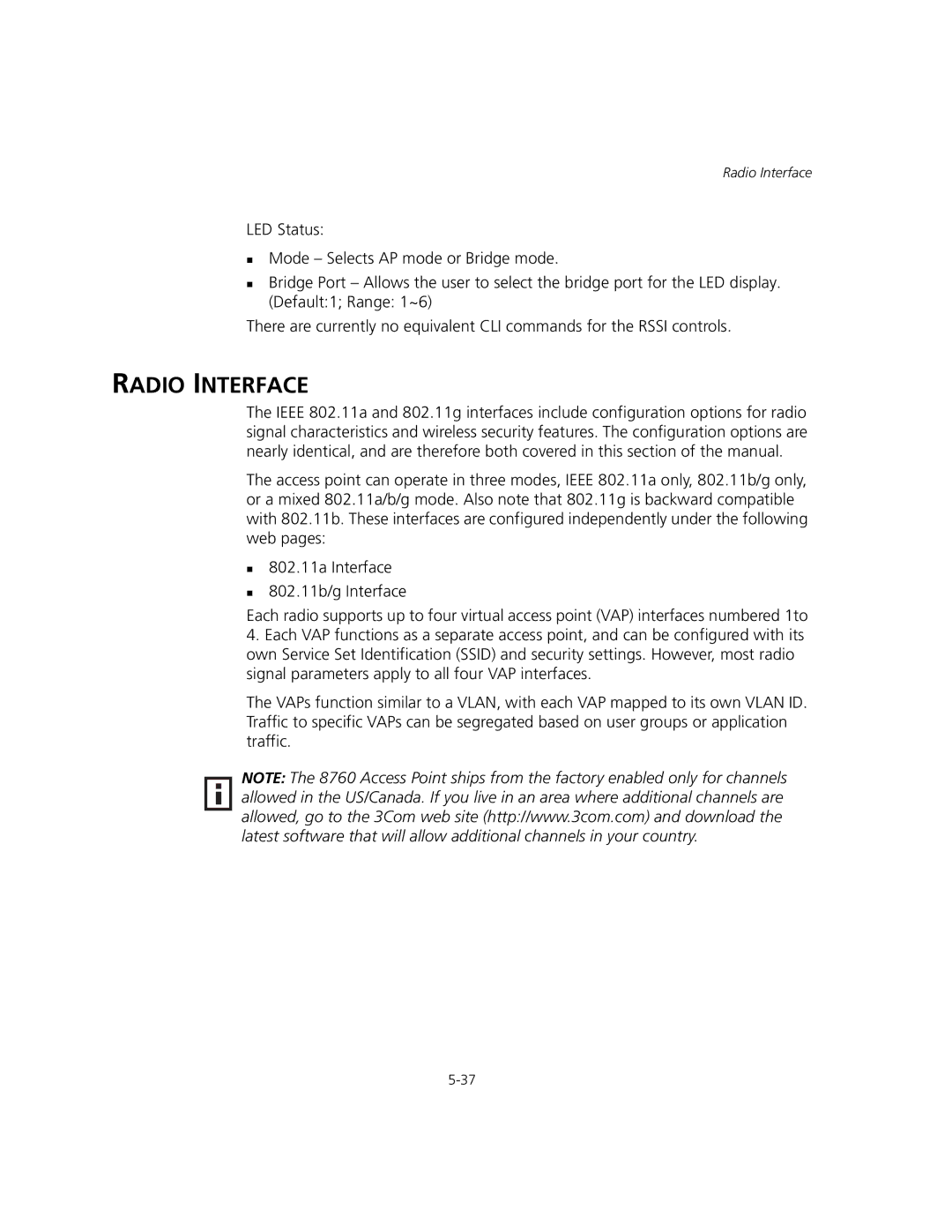Radio Interface
LED Status:
Mode – Selects AP mode or Bridge mode.
Bridge Port – Allows the user to select the bridge port for the LED display. (Default:1; Range: 1~6)
There are currently no equivalent CLI commands for the RSSI controls.
RADIO INTERFACE
The IEEE 802.11a and 802.11g interfaces include configuration options for radio signal characteristics and wireless security features. The configuration options are nearly identical, and are therefore both covered in this section of the manual.
The access point can operate in three modes, IEEE 802.11a only, 802.11b/g only, or a mixed 802.11a/b/g mode. Also note that 802.11g is backward compatible with 802.11b. These interfaces are configured independently under the following web pages:
802.11a Interface
802.11b/g Interface
Each radio supports up to four virtual access point (VAP) interfaces numbered 1to
4.Each VAP functions as a separate access point, and can be configured with its own Service Set Identification (SSID) and security settings. However, most radio signal parameters apply to all four VAP interfaces.
The VAPs function similar to a VLAN, with each VAP mapped to its own VLAN ID. Traffic to specific VAPs can be segregated based on user groups or application traffic.
NOTE: The 8760 Access Point ships from the factory enabled only for channels allowed in the US/Canada. If you live in an area where additional channels are allowed, go to the 3Com web site (http://www.3com.com) and download the latest software that will allow additional channels in your country.
